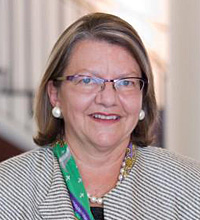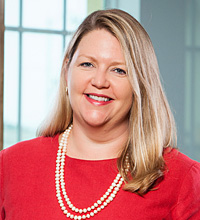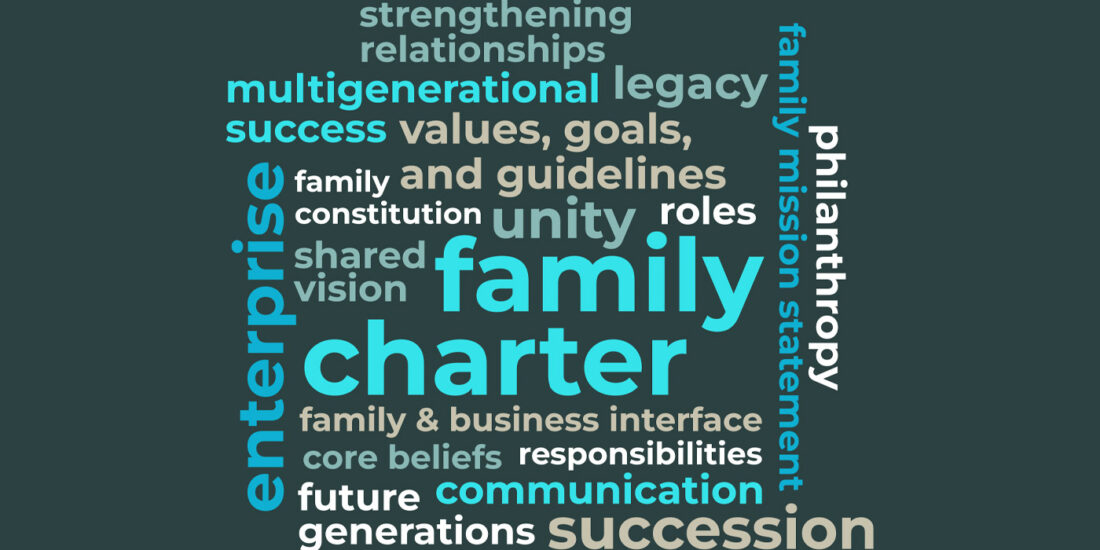An Interview on Family Governance with Barbara Hauser
In this issue of The Practitioner, Kirby Rosplock from The Practitioner Editorial Committee interviews Barbara Hauser on the topic of family governance as it relates to the 2016 conference of theme of Adapt | Evolve | Transform.
Kirby Rosplock (KR): Why do families struggle to evolve the family governance over generations?
Barbara Hauser (BH): All families fall into their own decision-making habits. Often there is unconscious deference to the oldest member of the family. In the USA there was a long-running TV show in the 1950s and 1960s with the unabashed title “Father Knows Best.” This is a natural patriarchal model in most cultures. It was not that long ago that England abolished its inheritance rule of “primogeniture,” leaving all to the oldest son. In ancient Greece the oldest son served as the “paterfamilias” and was responsible for the family wealth management. If you compare that to the governance of countries–which I always like to do–this is the “dictator” model. History is filled with benevolent dictators and then also with tyrannical dictators. When “power corrupts,” the trend is toward tyrannical dictators, that can lead to revolutions, in countries and in families. Given those unpleasant, even fearful, undercurrents, family members would rather think about something else, anything else.
KR: What do you see as the most important contributing factor to how families adapt their governance?
BH: The best changes happen when the family manages to allow real participation among all the family members. A number of factors can cause this change. It could be due to the aging and/or weakening of the patriarch. It could be due to the “coming of age” challenges from younger members of the family. It often comes from the spread of information and education in programs such as FFI events.
KR: What role, if any, can outside consultants play to support this adaption?
BH: Outside consultants can be extremely helpful in a modeling and also a handholding role, even being both coach and cheerleader. The family members need encouragement to try new habits. They need to feel safe. They also need to practice the new behavior. One of the comments I treasure was from an adult daughter who said I helped her be heard in the family. The whole family benefited from her views. Another head of a Saudi business family was content in his accepted role as oldest son and therefore in charge—then I came and encouraged fuller participation in the family. He shared with a group of his peers that after this process work he began hearing views from his siblings—and found that they often had good ideas!
KR: What would you advise a family who is trying to adapt its decision-making process to consider as a first good step?
BH: Inviting a good consultant to help is a great first step. All the families I have talked to admit that this kind of change is not something they can do themselves. The family patterns, conscious and unconscious, are too set. They need a trusted catalyst. The method I suggest begins with individual, confidential interviews — to understand the family and its issues. Then to tailor some formal agendas to have respectful, facilitated discussions. Those meetings, in my experience, if done well, are the single biggest factor in success. They also provide a forum for the inevitable tough issues that will come up — there will be a calming and respectful process to follow.
KR: What are the common pitfalls that families miss in the adaption process of their decision-making?
BH: The most common pitfall is to fall back into the familiar patterns of decision-making. Constant vigilance is needed–with a healthy sense of humor!
KR: How can families with highly developed, well-functioning governance systems adapt them for the changes, especially technological, that are down the road? And how many consultants operating today are really prepared for this challenge.
BH: This is one of the areas in which involving the younger generation is both somewhat of a necessity and also a great opportunity for their participation. As with all changes, I find that “top-down” directions and mandates are not well received. Far better is to include in the decision-making those who will be affected by the changes—including technology changes. For example this well-functioning family may form a committee to consider and recommend related changes. Consultants also need to be alert to technology changes that affect good family governance.
About the contributors:
 Barbara R. Hauser, M.A., J.D. , has more than 25 years experience working with families in many countries. Based in Minneapolis, MN, she is a frequent speaker and is the author or co-author of several books, including her most recent, International Family Governance and International Estate Planning. Barbara can be reached at [email protected].
Barbara R. Hauser, M.A., J.D. , has more than 25 years experience working with families in many countries. Based in Minneapolis, MN, she is a frequent speaker and is the author or co-author of several books, including her most recent, International Family Governance and International Estate Planning. Barbara can be reached at [email protected].
 Kirby Rosplock, Ph.D., an FFI Fellow, is founder of Tamarind Partners. A fourth generation family business owner, board member, and co-trustee of her family’s foundation, she authored The Complete Family Office Handbook. Kirby can be reached at [email protected].
Kirby Rosplock, Ph.D., an FFI Fellow, is founder of Tamarind Partners. A fourth generation family business owner, board member, and co-trustee of her family’s foundation, she authored The Complete Family Office Handbook. Kirby can be reached at [email protected].




